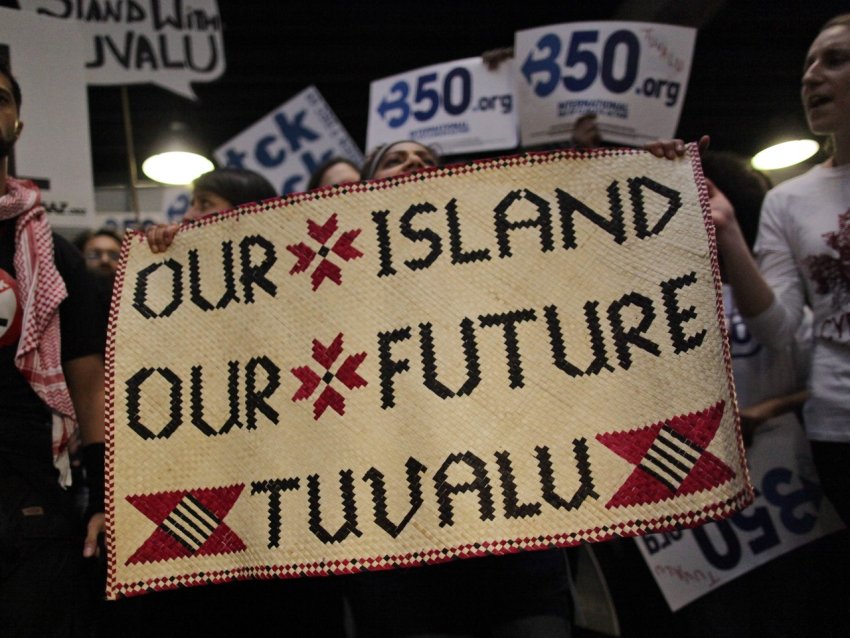
Campaigners applauded leaders in the Global South for continuing to lead the way in the fight for far-reaching climate action as the island nation of Tuvalu brought a proposal for a fossil fuel non-proliferation treaty to the United Nations' annual climate change conference, on November 8.
"We all know that the leading cause of climate crisis is fossil fuels,"Kausea Natano, prime minister of Tuvalu, told global leaders at COP27 in Sharm El-Sheikh, Egypt. "It's getting too hot and there is very [little] time to slow and reverse the increasing temperature. Therefore, it is essential to prioritize fast-acting strategies."
By formally endorsing the creation of a treaty, said the Fossil Fuel Non-Proliferation Treaty Initiative, Tuvalu is "proactively seeking solutions to phase out fossil fuels and offer hope to its population and the world."
Tuvalu became the second nation to endorse a treaty which would approach the extraction of fossil fuels as a danger as grave as nuclear weapons, which are the focus of a non-proliferation treaty signed by nearly 100 countries.
Vanuatu proposed a fossil fuel non-proliferation treaty at the UN General Assembly in September, and advocates celebrated last month when the European Union overwhelmingly passed a resolution formally endorsing the treaty — one year after lawmakers had voted it down.
Following Natano's statement at COP27, environmental scientist Amy Clarke tweeted that "there is an inexorable move towards" a fossil fuel nonproliferation treaty.
The treaty would ban the proliferation of coal, oil, and gas by ending all new production and extraction projects; phase out existing production; and ensure a just transition toward renewable energy that would "enable economic diversification" and "support every worker, community, and country".
Despite the support of the EU along with dozens of international cities, the World Health Organization and nearly 200 other global health groups, and more than 100 Nobel laureates in addition to Vanuatu and Tuvalu, The Washington Post reported that Natano's call "didn't get much engagement" from the assembled leaders at COP27.
"Pacific leaders continue to show what true climate leadership looks like," said climate activist Brianna Fruean. "From their key role in the Paris agreement, to the fight to limit warming to 1.5 degrees, to the historic endorsement of the fossil fuel treaty today."
"You may have heard the phrase '1.5 to stay alive' from young Pacific people at COP27 this year," Fruean added. "This is not an exaggeration or a catchy slogan, our very survival depends on whether or not leaders display the bravery and the political will to do everything in their power to limit us to 1.5 degrees of warming."
Caroline Lucas, a member of British Parliament representing the Green Party, denounced her own Tory-led government for offering new oil and gas leases to companies in the North Sea and handing out billions of dollars in fossil fuel subsidies since the Paris climate agreement was forged in 2015.
COP27 is being held on the heels of several devastating reports by global climate experts, warning that "urgent system-wide transformation" is imperative in order to keep the planet from warming an estimated 2.9°C over the preindustrial average by the end of the century, and that global carbon emissions are projected to rise 10.6% by 2030 under the status quo.
"Big ocean states have provided so much leadership to international policymaking," said Harjeet Singh, political lead for Climate Action Network International. "Big ocean states pushed for the 1.5°C target, they've pushed for loss and damage, and now they're pushing for a fossil fuel nonproliferation treaty. This is the next necessary step in international climate policy for climate justice."
[Reprinted from Common Dreams.]